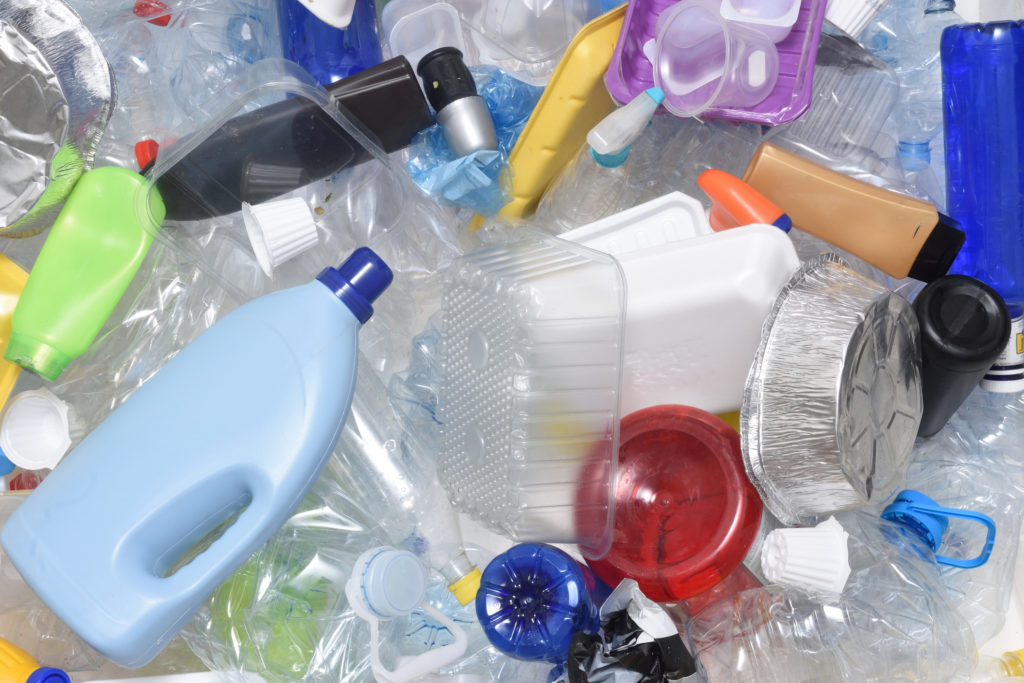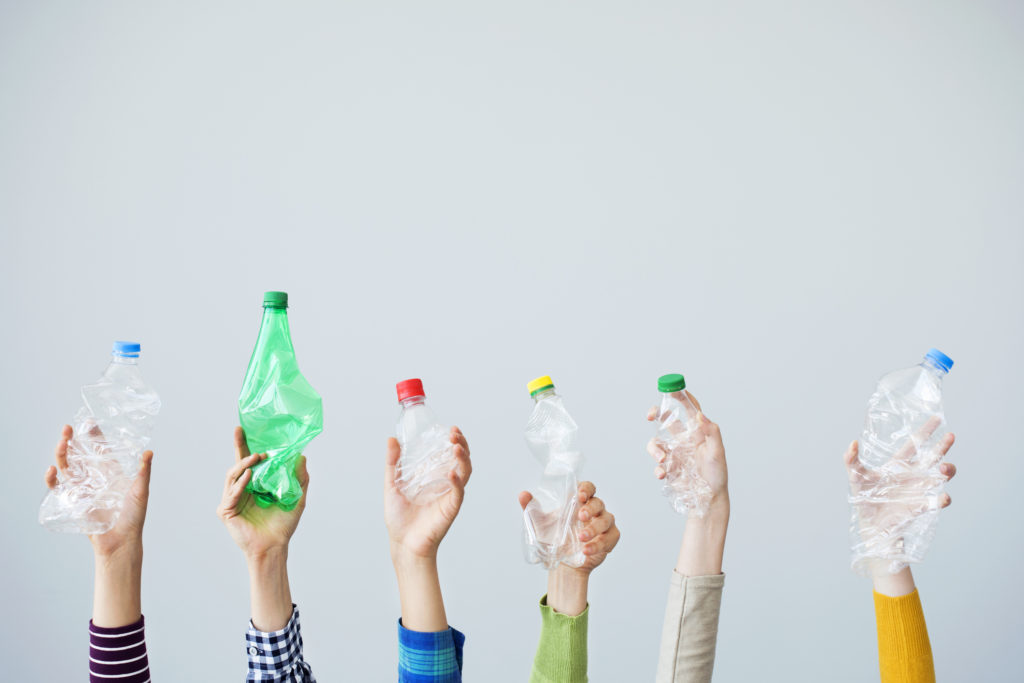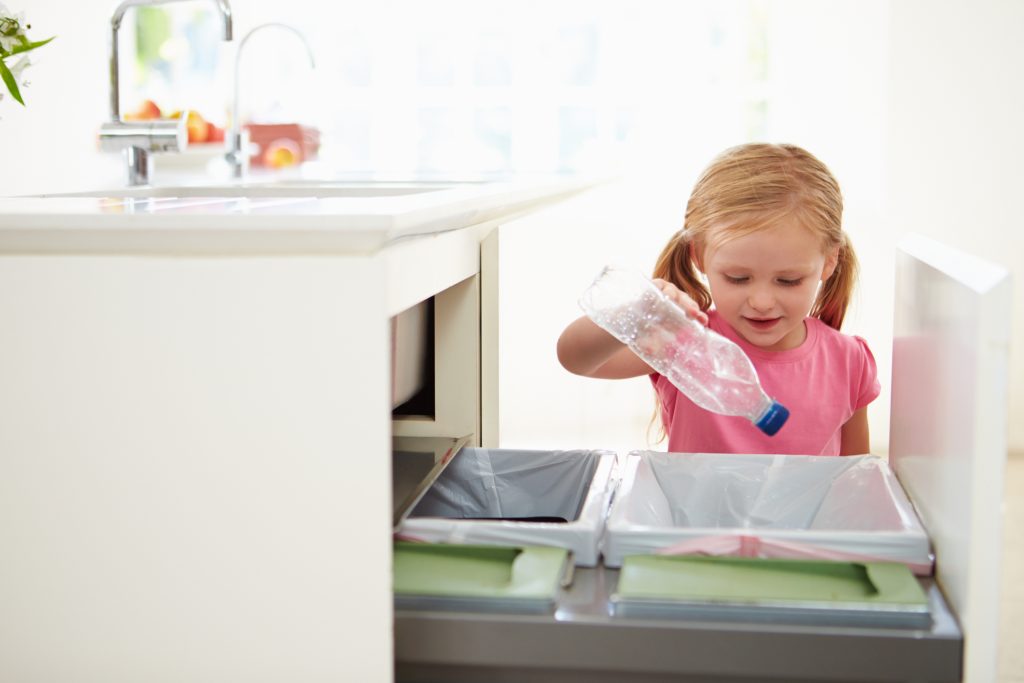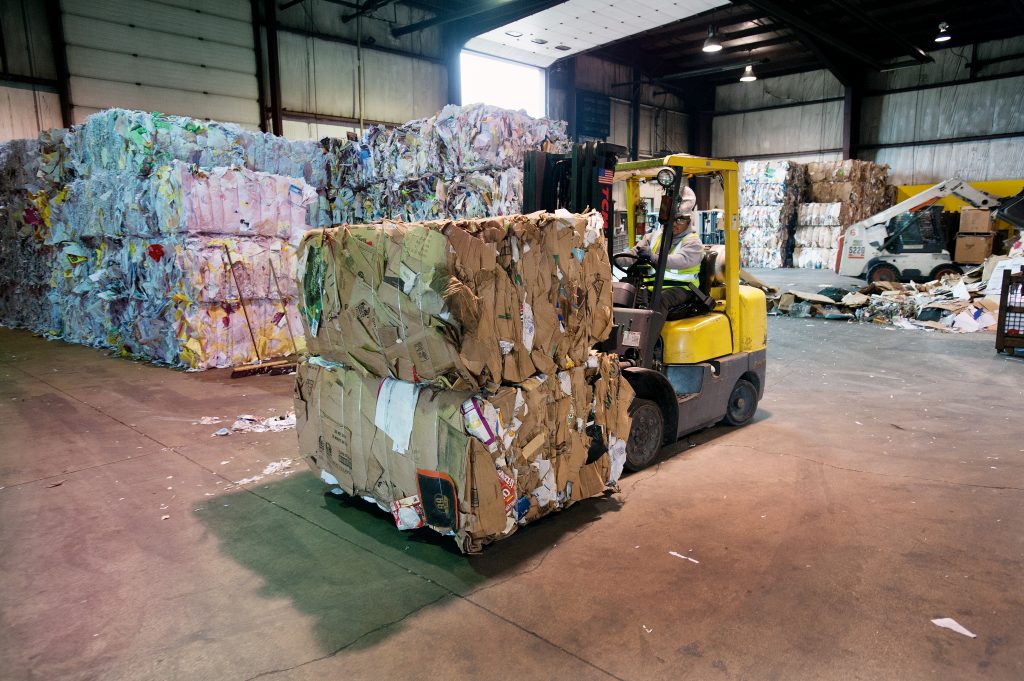Recycling
To us, recycling is more than taking something old and turning it into something new. It’s about preserving our earth’s God-given resources for future generations.
Why We Recycle

To sustain our natural resources, including timber, water and minerals

To reduce pollution and waste by eliminating the need to produce new material

To save energy

To protect our air quality by reducing greenhouse gas emissions

To create jobs for the collection and processing of recyclables

To increase the longevity of our landfills
Recycling by the Numbers
| According to the EPA, in 2016 recycling accounted for 757,000 jobs, which equates to 1.57 jobs for every 1,000 tons of materials recycled. |
250,000,000 trees could be saved each year by recycling all of your old newspapers. |
1 year of recycling equals 6 years of power. |
Using old paper to make new paper requires 30-50% less energy. |
| Recycling 12 plastic bottles can power an air conditioner for one hour. |
5 plastic bottles provide enough recyclable material to make one square foot of carpet or fiber to fill one ski jacket. |
Recycling 2,000 pounds of plastic bottles saves the amount of energy used by a two-person household for one year. |
Together, Granger customers recycle more than 54,000,000 pounds each year. |
What Can Be Recycled?
A guide to residential recycling
It’s important to recycle right. Keeping contamination out of the recycling stream keeps the process less expensive and more sustainable.

Corrugated Cardboard
Includes items like:cardboard boxes often used for shipping, transporting and storing |
Does not include:wax-coated cardboard, cardboard meant to keep products cold or hot, like 6-, 12- or 24-pack beverage cases and frozen dinner packaging |
How to Prep:Remove anything inside boxes, safely break down and flatten cardboard; place in cart |
Plastic Bottles, Jugs, Tubs & Containers
Includes items like:plastic beverage bottles and lids (water, tea, juice, etc.); plastic bottles and lids (shampoo, conditioner, soap, mouthwash, etc.); plastic food tubs, containers and lids (margarine, sour cream, yogurt, dips, etc.); plastic jugs and lids (milk, juice, detergent, cooking oil, vinegar, etc.) |
Does not include:plastic shopping bags, clothing hangers, plastic zip top bags, wax-coated cartons, foam containers/packaging, rubber (garden hoses. tires, gloves), inflatables, toys, pools, buckets, laundry baskets, barrels, free-flowing liquids |
How to Prep:Remove contaminants and rinse clean and dry; caps and lids may be left on |

Mixed Paper
Includes items like:newspaper, magazines, direct mail, postcards, first class mail, envelopes, letterhead, writing and office papers, phone books, manuals, instruction guides |
Does not include:wax-coated cardboard, plastic wrapping or bags, string, twine, sticker paper, shopping receipts |
How to Prep:Remove any nonrecyclables |

Clear & Colored Glass Bottles and Containers
Includes items like:clear and colored glass jars and bottles (pickle jars, mason jars, wine and liquor bottles, nondeposit beverage glass, etc.) |
Does not include:barware, glassware or drinking glass, corks, Pyrex and other glass cookware, window panes, mirrors, plate glass or automobile glass, light bulbs
Glass not accepted in all areas |
How to Prep:Remove lids and anything inside; metal lids can be recycled separately |

Boxboard
Includes items like:tissue boxes, cereal boxes, cracker/snack boxes, dried pasta boxes, paper towel rolls, shoe boxes, toothpaste boxes |
Does not include:plastic wrapping, wax- or foil-coated boxes, refrigerator or freezer boxes, including frozen meal boxes and 6-, 12-, or 24-pack beverage cases |
How to Prep:Remove anything inside (food, plastic, foil coating) and flatten |

Metal Cans & Foil
Includes items like:empty canned goods (sauce, soup, vegetables, fruit, tuna, etc.); beverage containers (juice, energy drinks, etc.); clean aluminum foil |
Does not include:paint cans, appliances, hangers, fencing, scrap metal, aerosol cans, contaminated or dirty tin and aluminum |
How to Prep:Empty and rinse clean of contaminants; labels do not need to be removed |
Granger Recycling Center
In 1989, we made a commitment to responsible environmental management by building our Recycling Center on Wood Road in Lansing. Recyclable materials from residential and commercial collection, as well as our drop-off center, are sorted and baled in this facility before being sent on to a recycling processor.
Recycling Drop-off
We own and operate a convenient recycling drop-off that is free to local residents.
Granger Recycling Drop-off
16936 Wood Road, Lansing, MI
(Driveway No. 6)
Get Directions »
Open 24 hours, 7 days a week
We also service drop-off centers in many municipalities. Contact your municipality for more information, as hours and accepted materials for recycling vary.
Recycling Blog Posts
Read detailed information about recycling.

